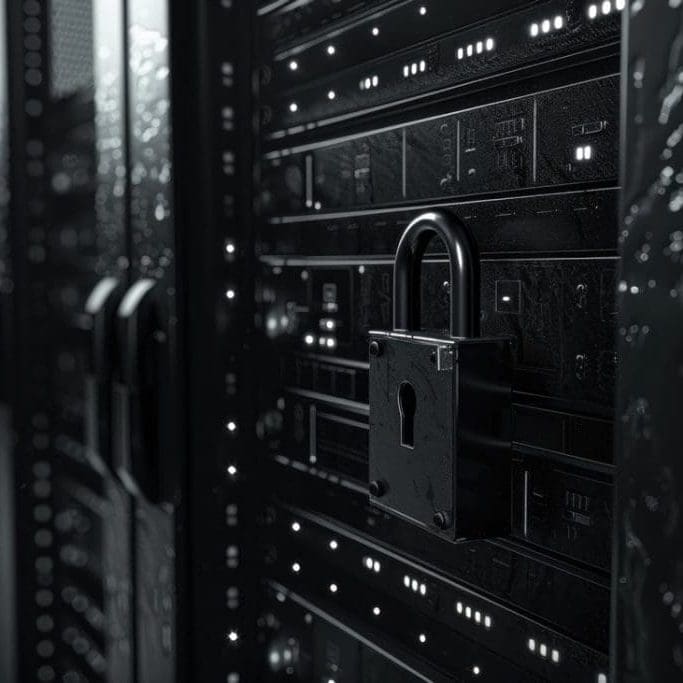The State of UK Server Security in 2025: Trends and Threats to Watch
In today’s digital economy, servers are the beating heart of every business, whether it’s hosting a website, storing customer data, or powering e-commerce transactions. In the UK, the pressure to keep servers secure has never been greater. With cybercrime growing at double-digit rates and compliance laws becoming stricter, 2025 is shaping up to be a defining year for UK server security.
This post explores the biggest threats facing UK servers today, the latest server security trends, and how leading providers are keeping businesses safe.
Why Server Security Matters in 2025
The UK Government’s Cyber Security Breaches Survey 2024 revealed that:
- 32% of UK businesses identified a cyberattack in the last 12 months.
- For medium and large businesses, this figure jumps to 70%.
- The average cost of a breach for UK SMEs is £10,830, while larger organisations face losses in the millions.
Servers are often the first target because they hold sensitive customer data, intellectual property, and financial records. For attackers, compromising a server means gaining control of the entire digital infrastructure.
The Biggest Cyber Threats in the UK Right Now
1. Ransomware-as-a-Service (RaaS)
Ransomware has shifted from isolated incidents to organised crime. Groups now sell ransomware “kits” on the dark web, making it easy for even low-skilled attackers to launch devastating attacks.
Case Study: In 2023, a London-based retailer suffered a ransomware breach via a misconfigured cloud bucket. Without tested backups, they were forced to pay over £120,000 in cryptocurrency to restore access.
2. AI-Powered Attacks
AI isn’t just helping defenders, it’s also empowering attackers. Malicious actors now use AI to:
- Craft convincing phishing emails that bypass spam filters.
- Launch faster brute-force attacks against server logins.
- Find vulnerabilities in misconfigured cloud services.
3. Cloud Misconfigurations
As more UK businesses move to AWS London, Microsoft Azure UK, and Google Cloud, simple misconfigurations (like leaving a storage bucket public) are leading to massive data leaks.
4. IoT and Edge Vulnerabilities
With more UK warehouses, factories, and even healthcare providers using connected IoT devices, attackers are exploiting these as “back doors” into servers.
Security Trends in UK Hosting and Data Centres
UK data centres and hosting providers are responding with new strategies and technologies:
Zero-Trust Security
Instead of assuming that anyone inside the network is safe, zero-trust architecture treats every login attempt as hostile until proven otherwise.
AI-Driven Monitoring
Providers like Krystal Hosting and UKFast use AI to detect unusual server traffic patterns and stop intrusions before they escalate.
Encryption Everywhere
Full-disk encryption and TLS 1.3 are becoming standard. Even backups are now being encrypted to stop ransomware from corrupting recovery data.
Compliance-First Hosting
With GDPR and UK GDPR fines reaching into the millions, hosts are building compliance into their offerings. Providers such as Equinix UK and Fasthosts include GDPR-ready infrastructure by default.
Trusted UK Providers Leading the Way
- Krystal Hosting (Katapult Cloud): UK-only data storage, ISO 27001 certified, and GDPR-compliant.
- UKFast: Manchester-based provider offering PCI DSS and ISO 27001 certification, 24/7 AI monitoring, and DDoS mitigation.
- Telehouse London: Known as one of the most connected data centres in Europe, with Tier III+ facilities and strict server security protocols.
- Equinix UK: Global provider with multiple London sites, offering robust compliance and physical server security.
How UK Businesses Can Strengthen Server Security
- Audit Regularly: Perform penetration tests every quarter.
- Patch Immediately: Apply software and firmware updates as soon as they’re released.
- Adopt Zero Trust: Restrict user privileges and enforce MFA (multi-factor authentication).
- Encrypt Everything: Data at rest and in transit should always be encrypted.
- Choose a Secure UK Host: Work with providers that are ISO 27001 certified and GDPR-compliant.
Conclusion
The state of UK server security in 2025 is complex, threats are more advanced, but defences are stronger than ever. With ransomware-as-a-service, AI-powered attacks, and misconfigured cloud platforms on the rise, businesses must take proactive steps to protect their data.
The good news? UK data centres and hosting providers are meeting the challenge head-on, offering enterprise-grade protection, compliance, and recovery options for businesses of all sizes.
Bottom line: The companies that invest in server security now will not only avoid breaches and fines but also win customer trust in an era where security is a business advantage.

